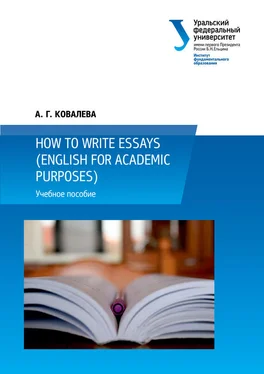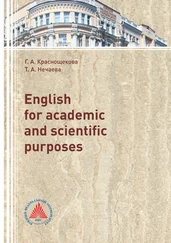We can easily lose sight of this when we try to take notes while we’re reading the text for the first time or straight after we’ve read it. We lose our objectivity: all we can see is the author’s ideas and opinions, not our own. We need to give our minds time to digest the ideas and selforganise.
You will find that if you leave time between reading and noting, your mind will have created its own structures out of the ideas it has taken from the text. Then, after we’ve allowed our minds sufficient time to do this, we need to organise ourselves to tap into it, to get our own understanding down on paper, without using the text. Otherwise the author will hijack our thinking and we’ll simply copy from the text without thought. Remember, you can always go back to check on details afterwards.
6 . Read the following passage, first for comprehension, and then for analysis and structure. Leave it for a few hours, even a day or so, then go back to it to take out the structure in normal linear notes.
But remember, your aim is to take out the hierarchy of points, the main sections and the way they break down into subsections. Cut out as much unnecessary detail as you can. Where there are examples or explanations, and you think you might need reminding of them, briefly note them in one or two words to act as a trigger for your memory, and nothing more. Choose words or succinct phrases that you know will make the connections to the information you want.
Keep in mind that the most important part of this exercise is to have a clear, uncluttered model of the passage. You will not achieve this if you allow yourself to be tempted into noting unnecessary detail. Your mind will have self-organised in the interval between reading and noting, producing a very clear structure of the passage in your subconscious, so you must develop the skills to tap into this to get an accurate picture of it clearly and simply on paper.
You won't do this if you continually tell yourself that you must note this and this and this, otherwise you're bound to forget them. Don't make it difficult for your mind by doubting its capacity to remember details that don't need to be noted.
Ethics in Business
Over recent years we have seen an unprecedented growth in the numbers of students around the world taking courses in professional and business ethics. Research suggests that in the USA, UK and Canada alone there are at least three million students engaged in philosophy modules as part of their professional degree courses, most of which are in ethics.
More than half of the leading international business schools now feature courses dealing with ethics and corporate responsibility as part of their compulsory syllabuses, according to recent research by the World Resources Institute and the Aspen Institute. In their 'Beyond Grey Pinstripes', a biennial ranking of international business schools, the 91 accredited schools featured in their 2005 report offer 1,074 such courses. And the number of schools requiring students to take them as part of their Individual programmes rose from 34 % in 2001 to 54 % in 2005. Indeed, the top ten schools worldwide each offer around 50 courses.
At the London Business School, ranked by the Financial Times, as the best in Europe, all MBA students are required to take a course in business ethics and responsibility. De Montfort University in Leicester has recently set up an MSc in International Business and Corporate Social Responsibility. The Said Business School at the University of Oxford and the Achilles Group have recently announced the creation of 'The OxfordAchilles Working Group on Corporate Social Responsibility': an initiative designed to bring intelligent debate and practical recommendations to what they describe as an important but underdeveloped field of corporate life.
In the USA a number of business schools have set up specialist centres to meet the increasing demand for ethics-related courses. Georgetown University, for example, established a Business Ethics Institute in 2000 to stimulate empirical and applied research into the issues involved. Boston College has established five distinct institutes, with themes ranging from corporate citizenship and responsible investment to work-life balance and ethical leadership.
Конец ознакомительного фрагмента.
Текст предоставлен ООО «ЛитРес».
Прочитайте эту книгу целиком, купив полную легальную версию на ЛитРес.
Безопасно оплатить книгу можно банковской картой Visa, MasterCard, Maestro, со счета мобильного телефона, с платежного терминала, в салоне МТС или Связной, через PayPal, WebMoney, Яндекс.Деньги, QIWI Кошелек, бонусными картами или другим удобным Вам способом.











